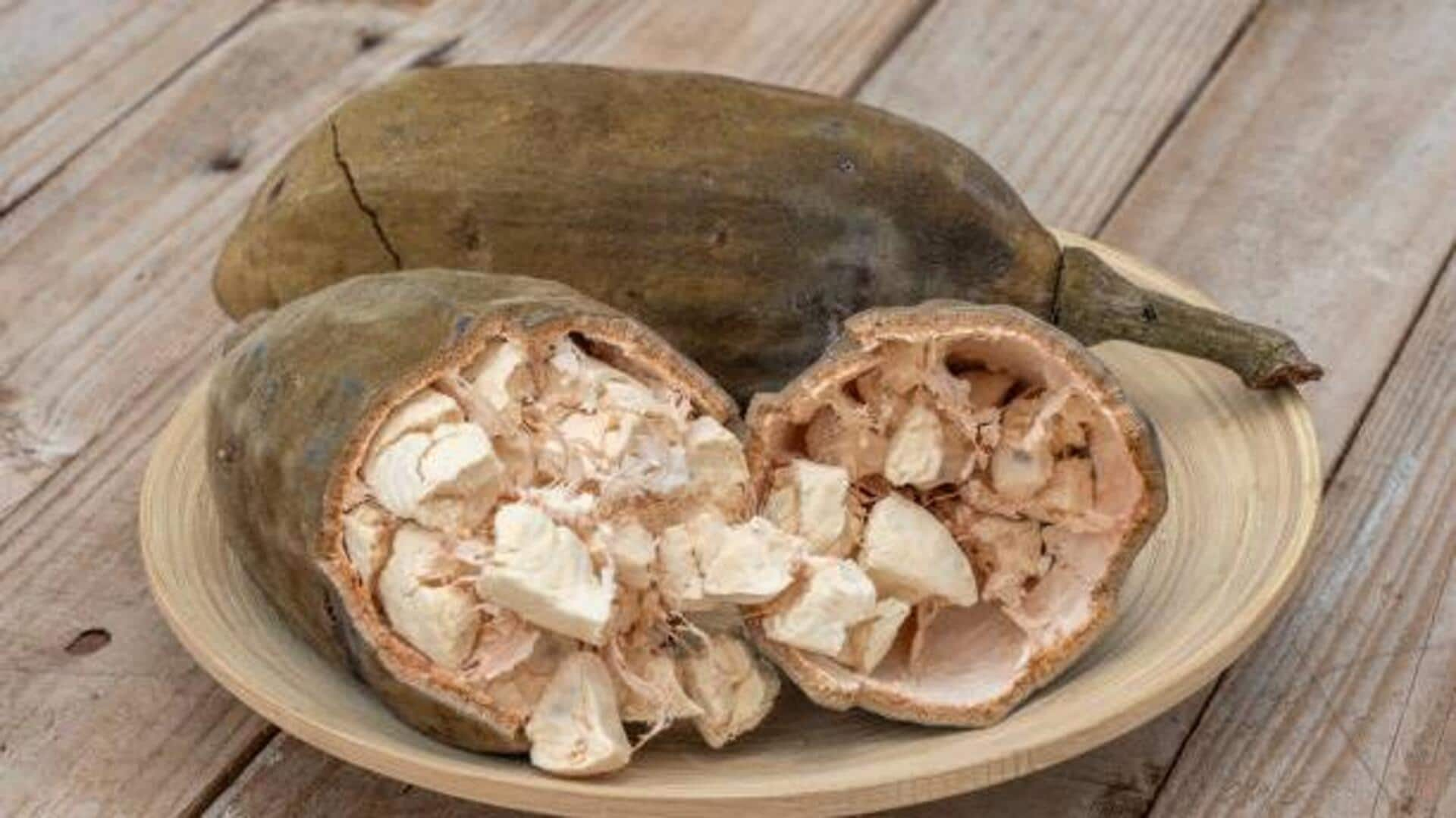
Lesser-known plants that can redefine healthy eating
What's the story
From their nutritional benefits to unique properties, African indigenous plants are becoming the next global superfoods. Often ignored, these plants are now being acknowledged for the role they can play in healthier diets across the world. From nutrient-rich leaves to antioxidant-packed seeds, these plants boast of a number of health benefits, which are proving to be increasingly appealing in the global market. Here are African indigenous plants making waves as superfoods.
Drive 1
Baobab: The nutrient powerhouse
Baobab has a high vitamin C content, offering up to six times more than oranges. This fruit is also a good source of calcium, potassium, and magnesium. Its powder form is a popular addition to smoothies and health drinks because of its tangy flavor and nutritious profile. Baobab's fiber content aids digestive health by ensuring regular bowel movements and improving gut flora balance.
Drive 2
Moringa: The miracle tree
Moringa leaves are loaded with vitamins A, C, and E, and minerals such as calcium and potassium. They also provide all nine essential amino acids that the human body needs for protein synthesis. Moringa is commonly used in the form of powders or capsules for its anti-inflammatory properties and capability to reduce blood sugar levels.
Drive 3
Fonio: The ancient grain
Fonio is a gluten-free, quick-cooking grain with a light texture like couscous or quinoa. It is loaded with iron, zinc, magnesium, and B vitamins that aid in energy production and immune function. Fonio's low glycemic index makes it ideal for those who are managing diabetes or seeking healthier sources of carbohydrates.
Drive 4
Hibiscus: The floral antioxidant
Hibiscus flowers are used to make teas with a tart flavor, akin to cranberry juice. They also contain antioxidants like anthocyanins which help reduce oxidative stress on cells. This reduction in stress can potentially lead towards the prevention of chronic diseases globally through dietary means alone, without the need for medication intervention at all times.